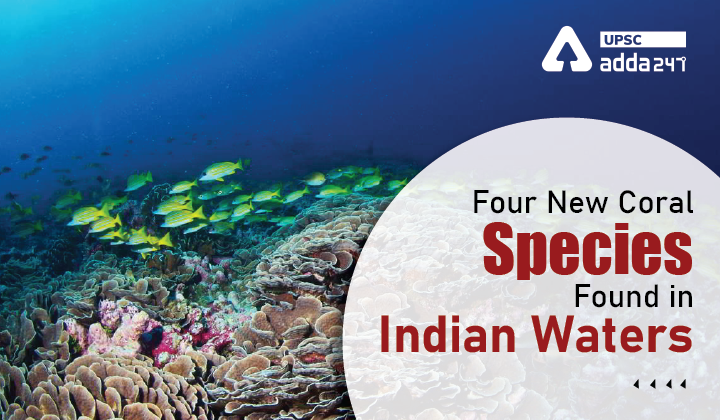Table of Contents
New Coral Species in India- Relevance for UPSC Exam
New Coral Species in India: Coral Species are very important part of Ocean ecosystem. Protection of Coral species is very important for the overall environment and ecology of the world. Coral Species are part of UPSC Mains GS Paper 3 (Environment- Conservation, environmental pollution and degradation).
News Coral Species in News
- Scientists have recorded four species of corals for the first time from Indian waters. These new species of azooxanthellate corals were found from the waters off the Andaman and Nicobar Islands.
About New Coral Species in India
- About new Corals: The four new coral species founded are of azooxanthellate corals. All the four groups of corals are from the same family, Flabellidae.
- Location: The new species of corals were found from the waters off the Andaman and Nicobar Islands.
- Azooxanthellate corals: They are a group of corals that do not contain zooxanthellae and derive nourishment not from the sun but from capturing different forms of planktons.
- They are deep-sea representatives with the majority of species being reported from depths between 200 metres and 1,000 metres.
- They are also reported from shallow waters unlike zooxanthellate corals that are restricted to shallow waters.
- Azooxanthellate corals are a group of hard corals and the four new species recorded are not only solitary but have a highly compressed skeletal structure.
- Distribution: Truncatoflabellum crassum, T. incrustatum, T. aculeatum, and T. irregulare under the family Flabellidae were previously found in Japan, the Philippines and Australian waters, while only T. crassum was reported with the range of Indo-West Pacific distribution.
- Significance: These new species enhance our knowledge about non-reef-building solitary corals.
- The new species enhance the national database of biological resources of India and also define the expansion of scope to explore these unexplored and non-reef building corals.
Coral reefs significance
Economic significance
- The value of goods and services provided by coral reefs is estimated at US$2.7 trillion per year, including US$36 billion in coral reef tourism.
Ecological significance
- Coral reefs support at least 25% of marine species and underpin the safety, coastal protection, wellbeing, food and economic security of hundreds of millions of people.
- Soft corals bend and sway amongst the craggy mountains of hard corals providing additional homes for fish, snails and other marine creatures.
- Coral reefs harbour the highest biodiversity of any of the world’s ecosystems, making them one of the most biologically complex and valuable on the planet.
Status of Coral Reefs of the World Report




 TSPSC Group 1 Question Paper 2024, Downl...
TSPSC Group 1 Question Paper 2024, Downl...
 TSPSC Group 1 Answer key 2024 Out, Downl...
TSPSC Group 1 Answer key 2024 Out, Downl...
 UPSC Prelims 2024 Question Paper, Downlo...
UPSC Prelims 2024 Question Paper, Downlo...





